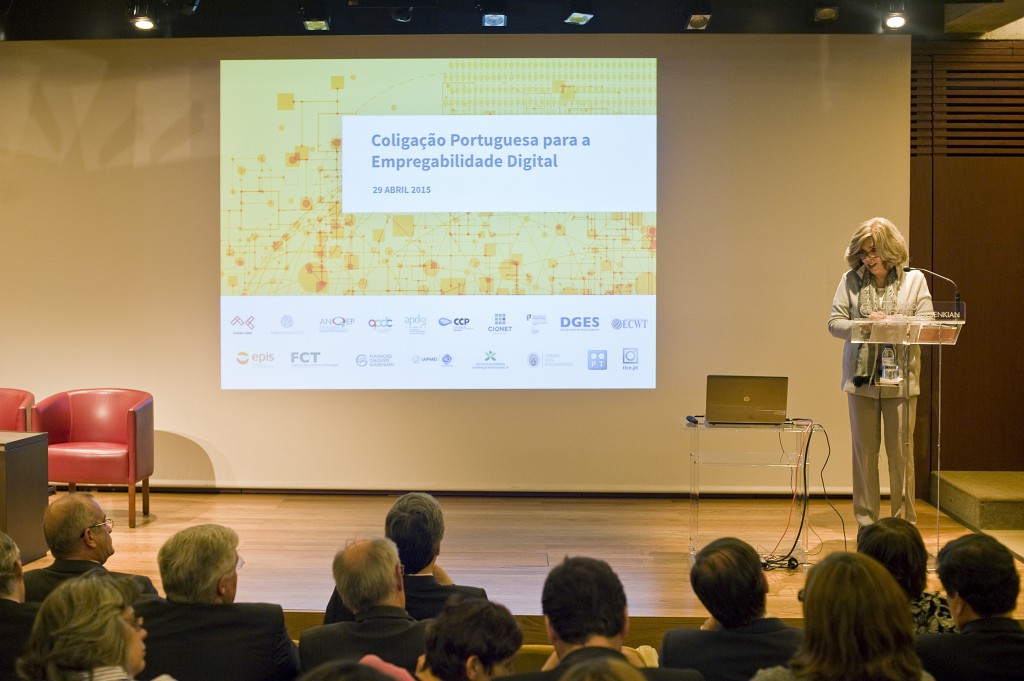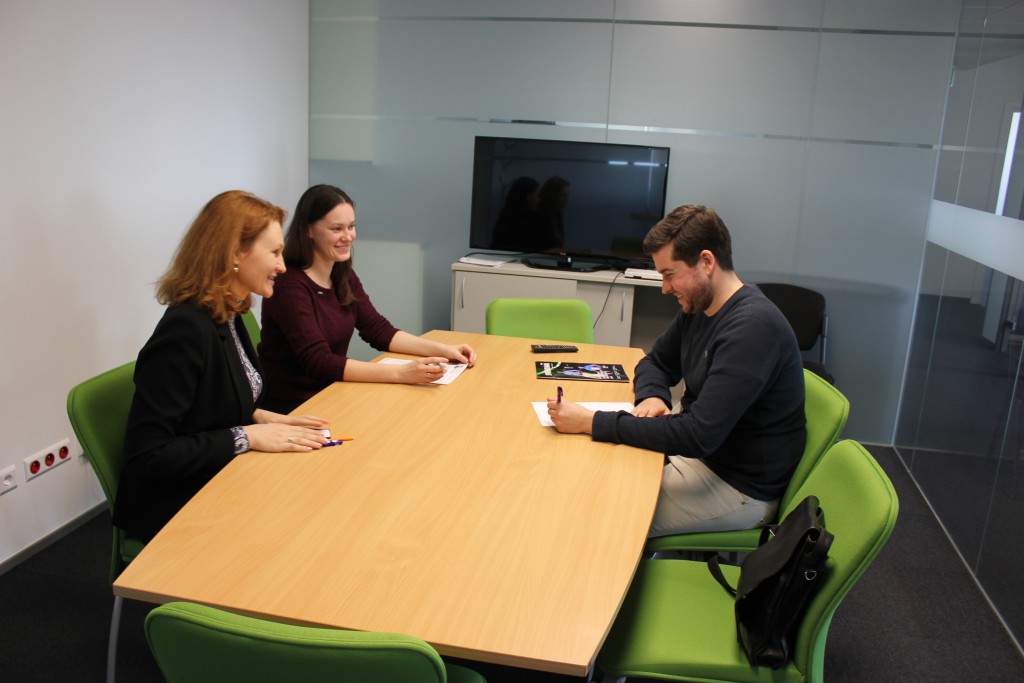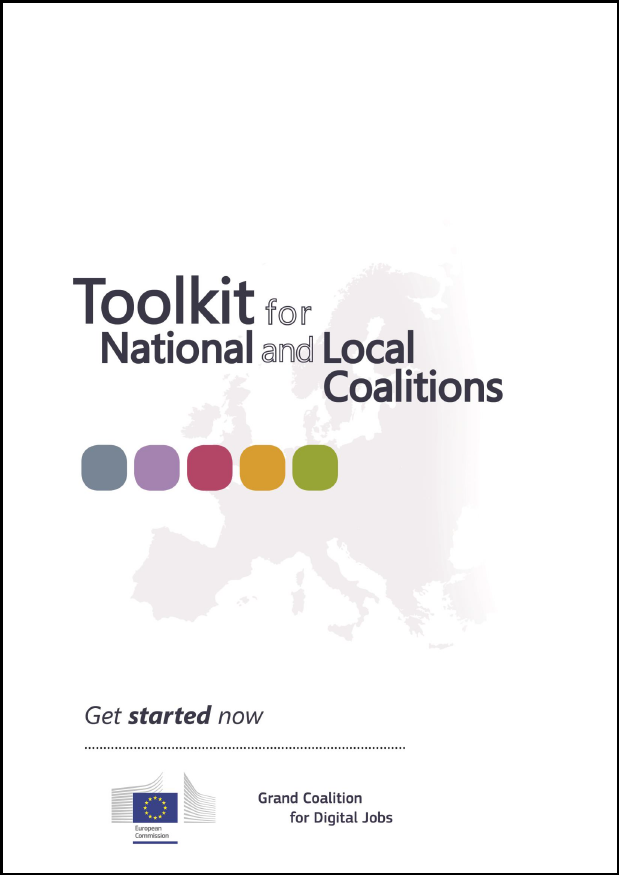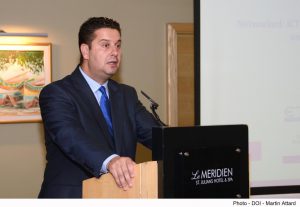25 Apr Partners meet to discuss project progress and global vision for jobs in Lisbon
25 Apr, 2015
24.04.2015 Lisbon
 The FIT4JOBS partners team met in Lisbon on April 20-22 to discuss the milestones reached so far in this European Commission funded project that replicates the employer-led training model pioneered by the Irish FIT Ltd (Fast Track to IT) across five additional European countries: Greece, Portugal, Spain, Latvia and Lithuania. The project also shows how the Grand Coalition for Digital Jobs acts at the local level to deal with the lack of digital skills in Europe.
The FIT4JOBS partners team met in Lisbon on April 20-22 to discuss the milestones reached so far in this European Commission funded project that replicates the employer-led training model pioneered by the Irish FIT Ltd (Fast Track to IT) across five additional European countries: Greece, Portugal, Spain, Latvia and Lithuania. The project also shows how the Grand Coalition for Digital Jobs acts at the local level to deal with the lack of digital skills in Europe.
The FIT4JOBS project team was built through partnerships between seven non-for profit organisations working to reduce the digital and social divide through training and support for marginalised groups. In the FIT4JOBS project the training is targeted at unemployed young people seeking to enter the workforce. Project partners are members of Telecentre Europe, a member-based association representing networks and promoting initiatives in the field of digital skills and social inclusion. Telecentre Europe has a key role in facilitating National and Local Coalitions for Digital skills and jobs and FIT4JOBS activities in the 6 participating countries are indeed part of their own National and Local Coalition plans.
The FIT4JOBS project partners include the leading ICT professional non-governmental association promoting the development of Information Society and e-skills in Latvia – LIKTA (Latvian Information and Communication Technology Association). The leading partner in Lithuania is the Association Asociacija „Langas į ateitį” (Window to the Future), a non-profit initiative launched in 2002 by private companies that provides computer literacy and Internet training to adults. The Spanish Association of Telecentre Networks (ACRT) brings together a number of entities to impulse, activate and maintain public spaces (telecentres) so as to promote the Information Society and provide access to ICT to all citizens. Programa Escolhas, a Portuguese nationwide program, created in 2001 and operating under the High Commission for Migration, works to promote social inclusion of children and young people from vulnerable socio-economic backgrounds. The Hellenic Professionals Informatics Society (HePIS) is a network of all ICT Professionals in Greece advocating their interests at both national and European level. FIT Ltd (Fast Track to IT) is an Irish industry-led initiative working in close collaboration with the (Irish) government departments and national education and training agencies, local development organisations and a host of community-based organisations.
All partners reported the completion of phase 1 of the project, which included a busy four months of planning and organising employer meetings, recruitment and selection of job seekers with an aptitude for ICT and the specification of courses to meet employer needs. The first phase applied a holistic approach to training which combines the training of technical and soft skills, with employability and high level of support to the students. Most partners reported that they have exceeded their initial goals in terms of employer engagement and commitment to the project, recruitment of suitable job seekers and selection of course curricula matching employers’ requirements. The second phase, where the project is now, will consist of the actual training of the selected participants, carried our by a number of training providers in the countries involved.
A strong thread in the project meeting was the high degree to which all partners, although working within the same FIT4JOBS model, were able to carefully examine and respond to their own local environments and issues, especially when comparing and adjusting employers’ needs to the actual availability of corresponding skills. All partners share the common problem of an ICT skills gap; however the type of skills did vary country to country. As expected, the most common overall skills shortages are related to software & web development. Response rates from job seekers and the level of commitment from employers to hire successful students was much higher than anticipated.
Outside of the original partners, there have been organisations from other European countries approaching the project consortium with an interest to adopt the FIT4JOBS model. This fact and the better than expected response in the partner countries, led the group to believe that FIT4JOBS initiative has the potential to become a global phenomenon and major contributor to solving the world shortage in ICT skills. Conservative estimates include the potential of placing of 100,000 ICT up-skilled job seekers in Europe in employment by 2020 through FIT4JOBS.
The FIT4JOBS project represents the realisation of the FIT Ireland’s pledge made to the Grand Coalition for Digital Jobs, a platform launched in 2013 by Nellie Kroes, former VP of the European Commission and responsible for Digital Agenda Europe. It also contributes to Telecentre Europe’s pledge and role at the Grand Coalition’s Secretariat, as facilitator of the Local and National Coalitions for Digital Skills.
FIT4JOBS welcome enquiries from any interested source regarding the rollout of the FIT4JOBS training model now or in the future. Please contact manushanratty@fit.ie or any of the FIT4JOBS partners (see www.FIT4JOBS.EU ). We also encourage individuals to endorse us and organisations to support us.









